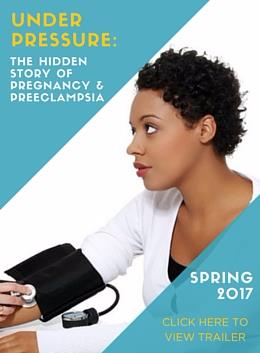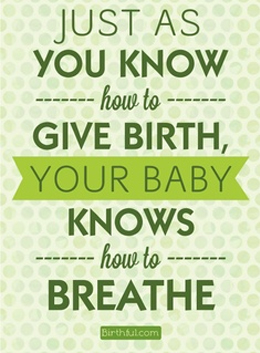By: Audrey D. Brashich
Kim Kardashian recently admitted that she hates being pregnant. In a recent post on her website and app, she called it “the worst experience” of her life and confessed that it leaves her feeling “insecure” and “gross.” Predictably, she’s being vilified online for having complained about her difficulties getting pregnant and now lamenting the changes pregnancy is inflicting on her body.
But is it really surprising that women are having an increasingly hard time enjoying pregnancy and the postpartum phase given our cultural obsession with women getting their bodies back as fast as possible after having a baby? When Heidi Klumwalked the runway five weeks after giving birth in 2009, it seemed absurdly fast and beyond unattainable for women who don’t have an army of personal trainers, chefs, and nutritionists on their payroll. But today the stakes are even higher. In both traditional and social media — women are showing off their weight loss just days after delivering.
“Over the past several years, a whole new lexicon has emerged for talking about women’s bodies during and after pregnancy,” points out Claire Mysko, author of Does This Pregnancy Make Me Look Fat: The Essential Guide to Loving Your Body Before and After Baby and the chief operating officer of the National Eating Disorders Association. Gossip magazines chronicle celebrities’ growing baby bumps, their pregnancy “glow,” and the inevitable debuts of their post-baby bodies. The relentless, repetitive coverage has created a narrative that plays out both in the mainstream media and in our own social-media feeds. “When we talk about pregnancy in our culture, it tends to be about how great a woman feels and looks while pregnant — and then about how quickly she can get back to how she looked before getting pregnant. There’s the expectation that that’s what women are supposed to do,” says Mysko, and lots of women are having a hard time with that
For 42-year-old Missy Miller, who works in communications at a major health food company in Los Angeles, life before getting pregnant included working out four to five days per week. But after a first-trimester scare, her doctor advised her to stop exercising. And now in her final days of pregnancy, she finds herself strategizing about bouncing back almost as much as planning for the baby’s arrival. “I know I shouldn’t obsess over it,” Miller says, “but I can’t stop wondering how in the world I’m going to get back to where I was.” Miller explains that she is already envisioning herself getting up hours earlier to squeeze in workouts, or leaving the baby with her husband or mother on weekends so she can fit in extended sessions at the gym. “It’s not that I want to worry about all this, or that I’m not happy to be having a baby, but it’s hard to stop stressing about fitting into my size 2 jeans again. In truth, I look at other women who have bounced back easily and I can’t help thinking, I hope it’s like that for me too.”
Jen Hatzung, 32, a cofounder of Shepercolates.com, which offers podcasts that explore the notion of women’s success, agrees. After struggling with infertility and failed treatments, Hatzung considers her pregnancy a “miracle.” “But I’d be 100 percent lying if I said that every single day I’ve woken up feeling great and loving being pregnant,” she admits. The hardest part for her has been witnessing the changes in her body. “When I could finally feel my baby girl start to move, my heart grew about a millions times. But when it comes time to get dressed for a work event or a friend’s wedding, well, that can have me destroying my closet and crying on the floor because what fit two weeks ago no longer covers my belly. And the magazines at grocery store checkout lines — with their stories that either criticize celebrities for not losing their baby weight or showcase their perfect bodies just months after giving birth — don’t make it any easier.”
But the relentless messages about getting back to where you were as soon as possible aren’t all foisted on women by media or companies hawking products to vulnerable expecting and new moms. For Sara Chiu, a 36-year old mother of two children under 3 in Vancouver, B.C., the pressure comes from closer to home. “When it comes to celebrities, I’m able to remind myself that they’re in the public eye and it’s their job to look good. Plus, they have help from trainers, nutritionists, etc.,” says Chiu. “But it’s harder when I look at my own friends with kids who have the same time and work constraints that I do. Social media photos are great for my friends and their kids, but they can elicit a pang of jealousy.”
And intense self-scrutiny.
For medical and health care professionals who work with expectant and new mothers, one concern is that the excessive body policing and extreme post-pregnancy goals can lead to “pregorexia,” or women purposefully restricting their calorie intake while pregnant to limit their weight gain and make rebounding easier. “Expectant mothers need about 300 to 400 extra calories per day,” says Kecia Gaither, MD, a maternal fetal medicine specialist and director of perinatal outreach at Montefiore Medical Center and Albert Einstein College of Medicine in the Bronx, N.Y. “Micronutrients are essential during pregnancy, including calcium for bone development, iron because blood volume increases, and omega fatty acids for fetal brain development. Any restriction in caloric intake can increase the risk of preterm delivery and a low-birth-weight baby.”
So how do we rewrite the narrative — especially when female celebrities broadcast their body dissatisfaction and or chronicle their struggles to get back to their pre-pregnancy appearance?
According to Latham Thomas, a birth coach/doula and founder of MamaGlow, an online hub that offers wellness information for pregnant women and new mothers, we can start by changing our perceptions and expectations of ourselves. “It’s time to let go of the idea that ‘going back’ to how we used to be before pregnancy and kids is where we want and need to be,” says Thomas. “Instead of lamenting parts of ourselves that we feel like we’ve lost, let’s embrace evolving — and the idea that as mothers, we’re in a new and empowering place.” Melinda Nicci, founder of Baby2Body.com, a new site offering expert information on psychological and physical well-being for pregnancy and beyond, echoes that. “The body isn’t static — it changes over time whether we have children or not. So why do we pin so much on how our bodies were before pregnancy or how we looked in our wedding photos? Dina Zeckhausen, PhD, founder of the Atlanta-based Eating Disorders Information Network, argues that given the beauty standards women measure themselves against daily in our culture, pregnancy could actually serve as a time for women to transform their perspectives and create new relationships with their bodies. “Priorities can — and usually do — shift for women as they enter motherhood. Instead of surrendering to the social pressures, the whole experience can be about healing our own self-image — and freedom from social demands and expectations.”
If we just let it.






